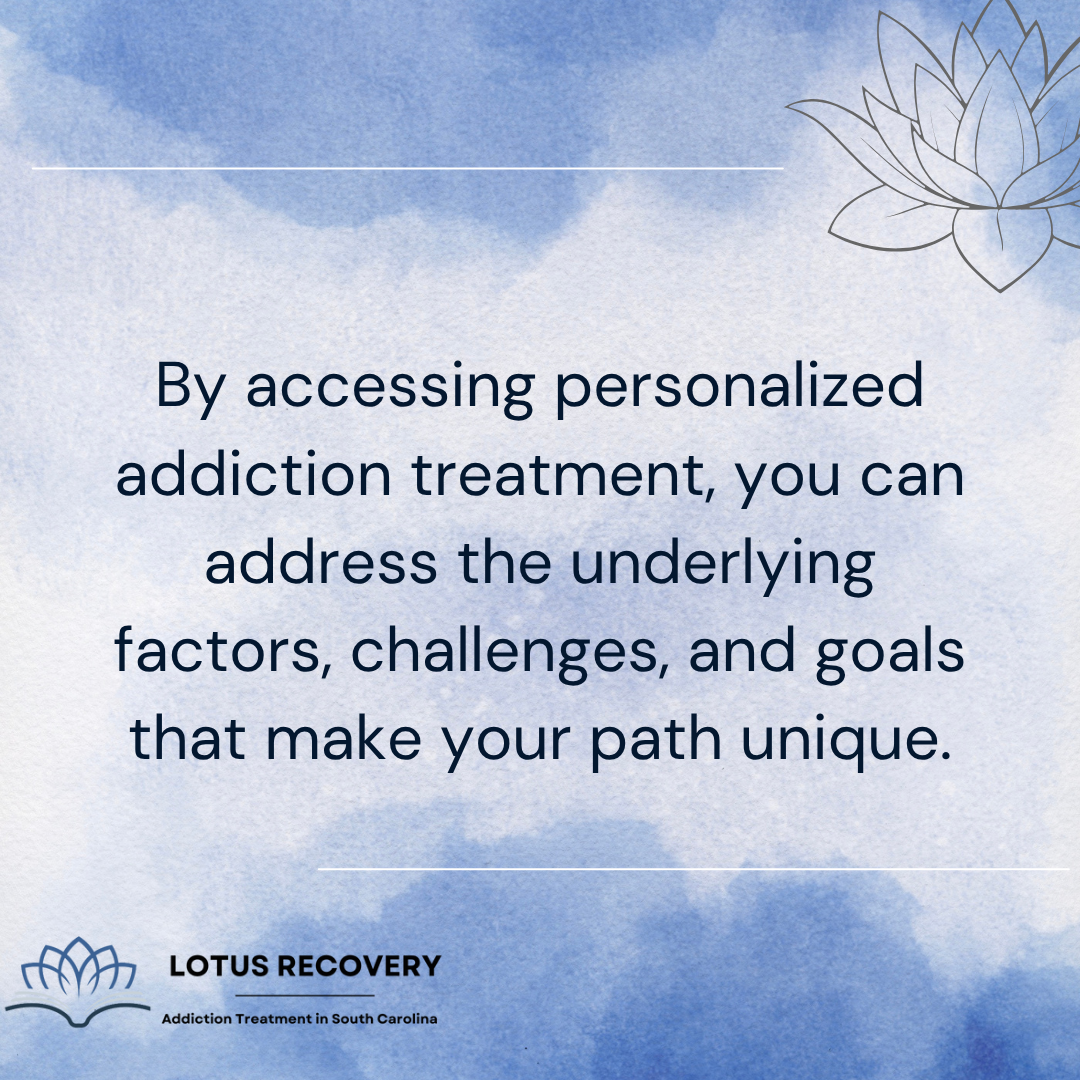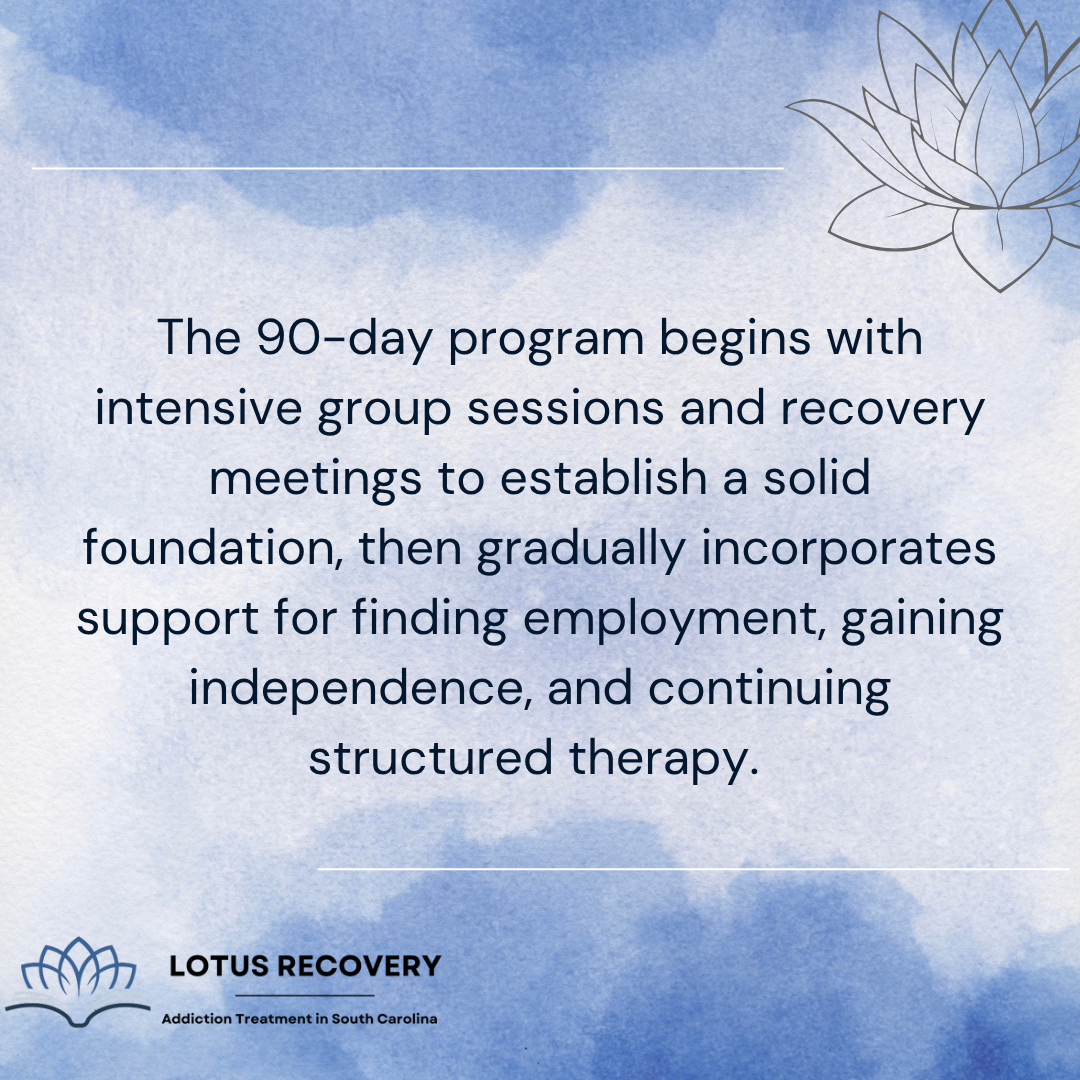.jpg)
Discover why personalized treatment is crucial for your recovery journey. Learn how an inpatient drug rehab can help you access that kind of treatment.
When it comes to overcoming addiction, one size doesn’t fit all. Everyone’s experiences, triggers, and needs are different, and addressing them directly can make recovery more effective and sustainable.
In South Carolina, one of the best environments where you can access tailored treatment is inpatient drug rehab. This program offers individualized therapy plans and medical support to meet your specific needs.
This article will explore why personalized treatment improves outcomes, the different options available (including 30 day rehab programs and 90-day ones), and how to choose the right provider in the state.

Your addiction recovery journey is a personal experience, and it’s something that merits a tailored approach. By accessing personalized addiction treatment, you can address the underlying factors, challenges, and goals that make your path unique.
Here’s what it means to get that kind of treatment:
The first step is a comprehensive evaluation. This includes understanding the type of substance you used, your mental health history, and any other medical concerns you have that may affect recovery. Such a thorough assessment ensures that the treatment plan targets the areas most critical for successful recovery.
Here, therapy is designed according to your needs. And it often combines group sessions for peer support with one-on-one counseling to address deeper personal struggles. This balance allows you to learn from others while receiving focused guidance on your own journey.
Recovery is more sustainable when it aligns with your life. Personalized programs take into account your goals, daily routines, and existing support networks. The goal is to create a treatment plan that integrates seamlessly into your specific reality and builds long-term resilience.

When your treatment revolves around your unique needs and overall lifestyle, it substantially changes the way you experience recovery. Personalized care helps you stay engaged, feel understood, and make progress that lasts.
In inpatient drug rehab, this approach can spell the difference between short-term improvement and sustained success.
You’re more likely to stay committed when therapy reflects your personal experiences and goals. Tailored programs make sessions relevant to your life, helping you stay motivated and actively involved throughout your recovery journey.
A plan that fits your individual needs doesn’t just get you through rehab; it sets you up for the long term. Personalized strategies help you recognize triggers, develop coping skills, and reduce the chance of relapse once you return to daily life.
If you’re managing mental health concerns alongside substance use, personalized care ensures both are treated together. Programs take into account your full picture, helping you overcome the challenges that are specific to your situation.
Recovery looks different for everyone, and the program you choose can have a big impact on your long-term success.
Inpatient programs provide a structured, immersive environment where you can focus entirely on your sobriety. These are contrary to outpatient programs, which offer flexibility for people who need to maintain daily responsibilities like work, school, or family.
If you’re seeking an intensive, short-term experience, 30 day rehab accelerator programs provide focused support to help break through the early challenges of recovery.
In this setting, you’ll participate in both individual and group mentorship sessions, where sharing experiences and learning practical strategies for managing cravings, emotions, and triggers builds a strong support network. Family involvement is often included to strengthen communication and rebuild trust, while trained specialists monitor progress and provide guidance throughout the month.
Note that a 30-day accelerator program is different from a 30-day commuters program. The latter allows you to live at home while taking part in structured recovery activities each day.
Now, if you want a longer, more comprehensive approach, the 90-day long-term program in South Carolina gives you time and resources to build a sustainable, sober lifestyle.
The 90-day program begins with intensive group sessions and recovery meetings to establish a solid foundation, then gradually incorporates support for finding employment, gaining independence, and continuing structured therapy. Its personalized one-on-one mentorship feature can help you navigate challenges, track progress, and develop the skills you need for lasting recovery.

In inpatient drug rehab, personalized plans guide your daily routine, balancing therapy, skill-building, and reflective time to support steady progress. Each activity is chosen to fit your unique needs, keeping you engaged and focused on recovery.
Your care team monitors your responses closely, adjusting sessions and approaches as needed. This ensures your treatment evolves with your progress, addressing challenges as they arise.
Different specialists (i.e., therapists, medical providers, and wellness staff) coordinate to create a cohesive plan. Within this structure, you also have room to set personal goals and make choices about your recovery, building both accountability and confidence for life after rehab.
Finding the right program can shape the success of your recovery journey. In South Carolina, it’s important to consider how a program fits your individual needs:

Personalized treatment is a transformative experience. If you’re recovering from substance abuse, this approach helps you keep engaged while addressing your unique challenges and increasing your likelihood of lasting success.
Inpatient drug rehab in South Carolina provides that very experience. With tailored therapy, professional guidance, and a supportive environment, you’re equipped to navigate recovery with confidence.
Here at Lotus Recovery, you can access such a program that combines individualized therapy, structured support, and ongoing mentorship to help you build a strong, lasting foundation for sobriety. Get in touch today!

Reviewer
Henna is a content strategist with over 5 years of experience in behavioral health marketing. She specializes in creating informed, compassionate content for addiction treatment centers, using her deep understanding of the industry to educate, engage, and support individuals seeking recovery.